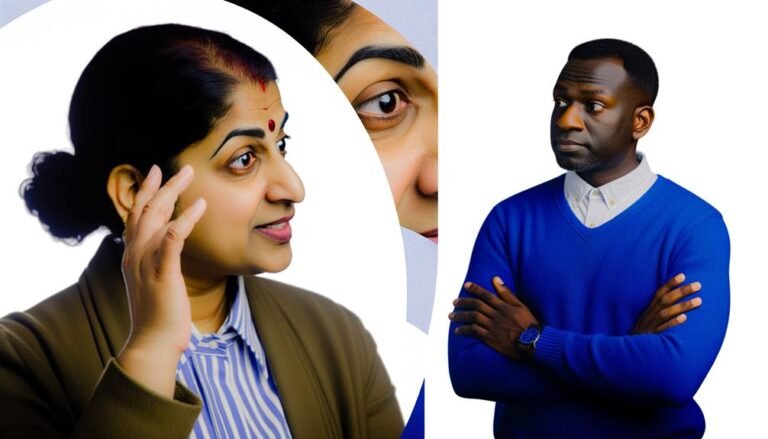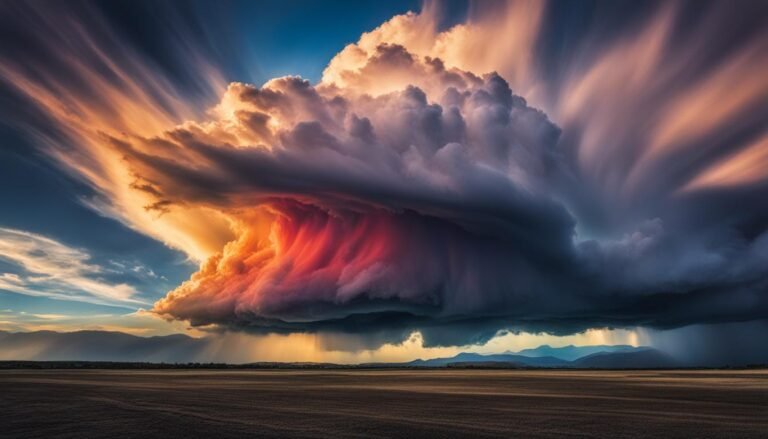Jury Decision-Making
When you step into the jury box, you hold the scales of justice in your hands. Jury decision-making is a complex process influenced by a variety of factors.
From the weight of evidence to the sway of emotions, your role in determining legal outcomes is crucial. As you consider the role of evidence, cognitive biases, expert testimony, group dynamics, and emotional factors in the jury room, you shape the course of justice.
Understanding the intricacies of jury decision-making can shed light on the implications for legal outcomes.
Key Takeaways
- Clear and effective evidence presentation enhances juror comprehension.
- Recognizing and mitigating cognitive biases is crucial for fair decision-making.
- Expert testimony shapes how jurors perceive and interpret evidence.
- Recognizing the potential for group dynamics to influence decision-making.
The Role of Evidence
When deliberating on a case, you should carefully weigh the evidence presented to you. Evidence evaluation plays a crucial role in shaping juror perceptions and ultimately influencing the outcome of a trial.
As a juror, your ability to critically assess the evidence will directly impact the fairness and accuracy of the verdict. It’s essential to approach the evidence with an open mind, considering its relevance and reliability.
Juror perceptions can be swayed by the way evidence is presented in court. Clear and effective evidence presentation is vital for juror comprehension. When evidence is communicated in a coherent and accessible manner, jurors are better equipped to understand the facts of the case and make informed decisions. Conversely, poorly presented evidence can lead to confusion and misunderstanding among jurors, potentially compromising the integrity of the trial.
As a juror, your role in evaluating and comprehending the evidence is fundamental to upholding the principles of justice and ensuring a fair trial for all parties involved.
Cognitive Biases in Jury Deliberation
As a juror, you must be aware of and guard against cognitive biases during deliberation, as they can impact the fairness and objectivity of the trial outcome. Cognitive biases, such as confirmation bias and social influence, can significantly influence jury decision-making. Confirmation bias occurs when jurors seek out or prioritize information that confirms their pre-existing beliefs about the case, while social influence can lead to conformity and a shift in individual judgments to align with the group. Moreover, perception errors and memory distortion are common cognitive biases that jurors should be cautious of. Perception errors can lead to misinterpretation of evidence or testimony, while memory distortion may cause jurors to inaccurately recall crucial details presented during the trial. Being mindful of these biases and actively working to mitigate their impact is essential for ensuring fair and just deliberation.
| Cognitive Bias | Description | Impact |
|---|---|---|
| Confirmation Bias | Seeking out information that aligns with existing beliefs | Reinforces predetermined opinions |
| Social Influence | Conforming to the group’s decision | Swaying individual judgments |
| Perception Errors | Misinterpretation of evidence or testimony | Distorting the understanding of facts |
| Memory Distortion | Inaccurate recall of crucial details | Compromising the accuracy of recollection |
Influence of Expert Testimony
Guard against letting expert testimony sway your judgment by critically evaluating its relevance and reliability in the context of the case. Expert credibility and persuasive techniques play a significant role in shaping how jurors perceive and interpret the evidence presented.
When considering expert testimony, it’s crucial to be mindful of the following:
-
Expert Credibility: Take into account the qualifications, experience, and potential biases of the expert witness. Assess whether the expert’s background and expertise directly align with the issues at hand in the case. Emotions may run high when considering the impact of an expert’s credentials on the jury’s decision.
-
Persuasive Techniques: Be aware of the persuasive strategies employed by expert witnesses. Experts may use language and visual aids to make their testimony more compelling, evoking empathy or fear in the audience. Recognize when emotions are being manipulated through persuasive techniques and strive to remain objective.
-
Balancing Emotions and Facts: Strive to strike a balance between emotional responses and factual analysis when evaluating expert testimony. Emotions can cloud judgment, so it’s essential to critically assess the evidence presented by the expert witness without being unduly swayed by emotional appeals.
Group Dynamics in the Jury Room
When you gather in the jury room, the influence of dominant personalities and the impact of groupthink can play a crucial role in the decision-making process.
As you deliberate, be mindful of how certain individuals may assert their opinions more strongly, potentially swaying the group’s overall judgment.
Additionally, guard against the tendency to conform to the group’s consensus without thoroughly evaluating all perspectives.
Influence of Dominant Personalities
You should consider how dominant personalities influence group dynamics in the jury room when making decisions.
Leadership dynamics play a pivotal role in shaping the direction of discussions and decision-making processes within the jury.
The influence of dominant personalities can sway the group towards a particular verdict, potentially overshadowing the input of other members.
Personality dynamics and group influence also come into play, as strong-willed individuals may inadvertently steer the collective decision towards their own biases.
This can lead to overlooked evidence or alternative perspectives, ultimately impacting the fairness of the final verdict.
It’s crucial to recognize and navigate the impact of dominant personalities within the jury room to ensure that all voices are given due consideration in the pursuit of justice.
Impact of Groupthink
Navigating the impact of groupthink in the jury room is crucial for ensuring fair and just decision-making, especially in light of the influence of dominant personalities. Group dynamics play a significant role in shaping the decisions made within the jury room.
The pressure to conform to the opinions of others can lead to groupthink, where individual dissenting opinions may not be adequately considered. This dynamic can hinder the fair assessment of evidence and the deliberation process.
It’s important to recognize the potential for group dynamics to influence decision making and actively encourage the expression of dissenting opinions. By doing so, the jury can mitigate the negative effects of groupthink and ensure that all perspectives are thoroughly considered, leading to a more balanced and just outcome.
Emotional Factors in Decision-Making
As a juror, your emotions can significantly impact the decision-making process. Emotional factors like fear, anger, or sympathy can influence your judgment and lead to cognitive biases.
Additionally, the stress of the trial environment can also affect how you make decisions.
Impact of Emotions
Often, emotions heavily influence your decision-making process as a juror, impacting the outcome of a case. Your emotional intelligence plays a crucial role in understanding and managing your emotions during deliberation. It affects how you perceive and interpret the evidence presented in court.
Empathy in deliberation allows you to consider the emotional experiences of all involved parties, influencing your ability to connect with the case on a deeper level. It can sway your perspective and decision-making in the jury room.
Additionally, the emotional weight of the case and the gravity of the consequences for the individuals involved can evoke strong feelings, potentially clouding your judgment. Therefore, recognizing and addressing these emotional factors is essential to ensure a fair and impartial decision.
Cognitive Bias Influence
Your emotional responses can lead to cognitive biases that influence your decision-making as a juror, potentially swaying your judgment in the jury room. Confirmation bias, a common cognitive bias, occurs when you actively seek out and prioritize information that confirms your preconceptions while ignoring contradictory evidence. As a juror, this can lead to a skewed perception of the case, impacting your decision-making.
Additionally, perception errors, another form of cognitive bias, can influence your judgment. These errors occur when your judgment is influenced by irrelevant factors such as the defendant’s appearance or demeanor, rather than focusing on the evidence presented.
Recognizing and mitigating these cognitive biases is crucial for making fair and impartial decisions as a juror, ensuring that your emotional responses don’t unduly influence the outcome of the case.
Decision-Making Under Stress
In evaluating evidence and reaching a verdict as a juror, emotional factors under stress can significantly impact your decision-making process. It’s important to recognize the influence of emotions on your decision accuracy. To manage stress and make sound judgments, consider the following emotional factors:
-
Anxiety: Feeling anxious can cloud your judgment and lead to hasty decisions. Find ways to manage anxiety, such as deep breathing or mindfulness techniques, to stay focused on the facts presented.
-
Empathy: Understanding the emotions of those involved in the case is crucial, but it’s essential to balance empathy with objectivity to ensure a fair verdict.
-
Pressure: The pressure of making a decision under stress can be overwhelming. Take breaks when needed and seek support from fellow jurors to alleviate the weight of this responsibility.
Implications for Legal Outcomes
Consider the jury’s decision-making process as a critical factor influencing legal outcomes. Legal precedents and courtroom dynamics play a significant role in shaping the jury’s understanding of the case. When jurors deliberate, they consider how the evidence aligns with established legal precedents and how courtroom dynamics have influenced witness credibility and testimony.
Additionally, jury selection and trial strategy also directly impact legal outcomes. The process of jury selection involves attorneys strategically choosing jurors who are likely to be sympathetic to their case, which can heavily influence the ultimate decision. Furthermore, trial strategy, including the presentation of evidence, witness examination, and closing arguments, is crafted to persuade the jury towards a favorable legal outcome.
Understanding the implications of jury decision-making for legal outcomes underscores the importance of thorough preparation and strategic execution in the courtroom. Attorneys must carefully consider legal precedents and courtroom dynamics when presenting their case, and they must approach jury selection and trial strategy with meticulous attention to detail. By doing so, legal professionals can enhance their prospects of achieving favorable legal outcomes through the influence of jury decision-making.
Conclusion
So, as you can see, the jury decision-making process is a complex one, influenced by a variety of factors such as evidence, cognitive biases, expert testimony, group dynamics, and emotional considerations.
When all of these elements come together, they create a decision-making process that’s as intricate as a spider’s web, with each thread playing a crucial role in determining the outcome of a trial.
It’s important for legal professionals to understand these dynamics in order to achieve just and fair legal outcomes.






